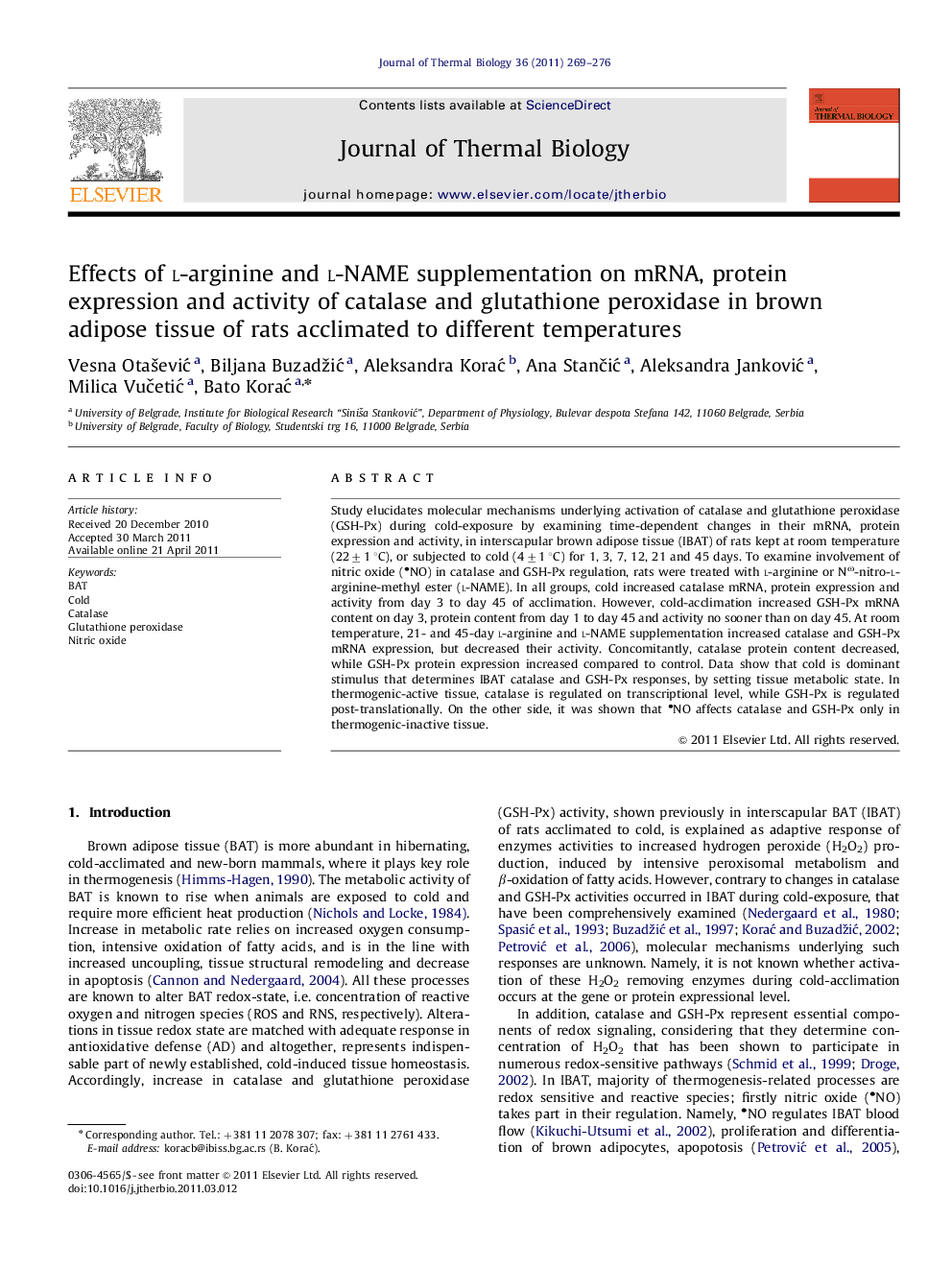| Article ID | Journal | Published Year | Pages | File Type |
|---|---|---|---|---|
| 2843194 | Journal of Thermal Biology | 2011 | 8 Pages |
Study elucidates molecular mechanisms underlying activation of catalase and glutathione peroxidase (GSH-Px) during cold-exposure by examining time-dependent changes in their mRNA, protein expression and activity, in interscapular brown adipose tissue (IBAT) of rats kept at room temperature (22±1 °C), or subjected to cold (4±1 °C) for 1, 3, 7, 12, 21 and 45 days. To examine involvement of nitric oxide (•NO) in catalase and GSH-Px regulation, rats were treated with l-arginine or Nω-nitro-l-arginine-methyl ester (l-NAME). In all groups, cold increased catalase mRNA, protein expression and activity from day 3 to day 45 of acclimation. However, cold-acclimation increased GSH-Px mRNA content on day 3, protein content from day 1 to day 45 and activity no sooner than on day 45. At room temperature, 21- and 45-day l-arginine and l-NAME supplementation increased catalase and GSH-Px mRNA expression, but decreased their activity. Concomitantly, catalase protein content decreased, while GSH-Px protein expression increased compared to control. Data show that cold is dominant stimulus that determines IBAT catalase and GSH-Px responses, by setting tissue metabolic state. In thermogenic-active tissue, catalase is regulated on transcriptional level, while GSH-Px is regulated post-translationally. On the other side, it was shown that •NO affects catalase and GSH-Px only in thermogenic-inactive tissue.
